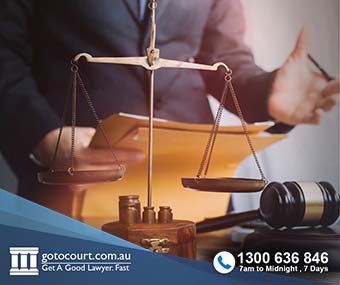Intestate In Melbourne
When someone dies in Melbourne before making a valid, comprehensive will, their deceased estate is either intestate or partially intestate. In this circumstance, instead of a testator making the decisions about the disposal of their assets, the intestacy provisions of the Administration and Probate Act 1958 govern the distribution of the estate. In cases of intestacy in Melbourne, a strict statutory formula privileges the rights of the next of kin, typically the deceased’s spouse and/or children. This article explains the consequences of dying intestate in Melbourne.
What Is Intestate In Melbourne?
Given many people’s reluctance to dwell on mortality, it is not unusual for people in Melbourne to avoid drafting and regularly updating their last will and testament. This avoidance unfortunately leaves the deceased’s family the task of administrating their loved one’s intestate, or partially intestate, estate. Sometimes the lack of testamentary instruction also leads to family members fighting amongst themselves over the assets of the estate.
It is not only those who avoid drafting a will who can be intestate: those who self-draft wills using kits often make mistakes in their will and as a result they are either intestate or partially intestate. It is essential that a testator drafts a will properly, not only to avoid ambiguity, but also because an informal document may not rise to the level of a valid will. There is growing concern as technology allows more people to make informal testamentary audio and video recordings to record their intentions in place of a formal will. The Court always prefers to recognise the wishes of the deceased, and will therefore attempt to validate even a highly informal will such as a video, but the process of legally validating an informal will is time-consuming and costly.
Partially Intestate In Melbourne
When a testator fails to regularly update their will, they can end up partially intestate. This occurs when the document does not address all the assets included in the deceased estate. A testator must ensure that they habitually review and update their will to recognise new property acquisition or significant life changes, such as marriage, the birth of a child, divorce, or the death of an executor or beneficiary.
A testator may not be aware that certain life events can revoke a pre-existing will and lead to intestacy. In Melbourne, when a testator marries, the only will that will continue to be valid is one that the testator prepared with the marriage in mind. Unless the will specifically says that it was made in contemplation of marriage with a particular person, a testator must update their will after the wedding ceremony to ensure that it acknowledges their testamentary wishes. This is often particularly important when there are children from a previous relationship, and the newlywed wants to ensure that their children remain primary beneficiaries of the will.
Administering An Intestate Estate In Melbourne
In cases of intestacy or partial intestacy, an executor or prospective administrator will need to apply to the Supreme Court of Victoria for Letters of Administration. This probate grant will allow the personal representative to administrate the assets of the intestate estate. The court will grant the Letters of Administration to the most appropriate applicant, typically the closest next of kin to the deceased. When the deceased had no close family, or they are unwilling to assume responsibility for the estate, the court will make a decision in the best interest of the estate and may even appoint a creditor as administrator.
Who Inherits An Intestate Estate In Melbourne?
Intestate succession law in Melbourne privileges the rights of a next of kin to inherit when there is no valid will. Typically, this means that the deceased’s spouse or de facto partner inherits the entire estate unless the estate is worth more than the statutory legacy amount prescribed in legislation. In Melbourne, the amount of the statutory legacy is just under half a million dollars, indexed to inflation. Children of the deceased from another relationship only inherit a share if the residual estate is worth over this amount. In the event that the intestate deceased has no surviving spouse or children, then the order of succession proceeds from the deceased’s parents, then to siblings, then to grandparents, followed by uncles and aunts and finally cousins.
Drawbacks To Intestacy In Melbourne
An intestate deceased has no control over who benefits and in what proportion from his or her estate. A testator may have a preferred beneficiary who under intestacy may receive little provision or miss out altogether. There are additional reasons why it is far less preferable to leave behind an intestate estate, including:
- The deceased has not chosen an executor and therefore has no control over the choice of estate administrator;
- The deceased has no opportunity to build tax effectiveness into the estate distribution, which might leave beneficiaries in a difficult financial position;
- The deceased has not nominated a guardian to care for any minor children;
- Administering the intestate estate may be more expensive; and
- There may be more expensive and time-consuming legal claims against the estate.
People can avoid the disadvantages that come with an intestate estate through the execution of a valid and comprehensive will. An experienced solicitor can draft a will to include redundancies and account for future assets.
If you require legal advice or representation in any legal matter, please contact Go To Court Lawyers.




